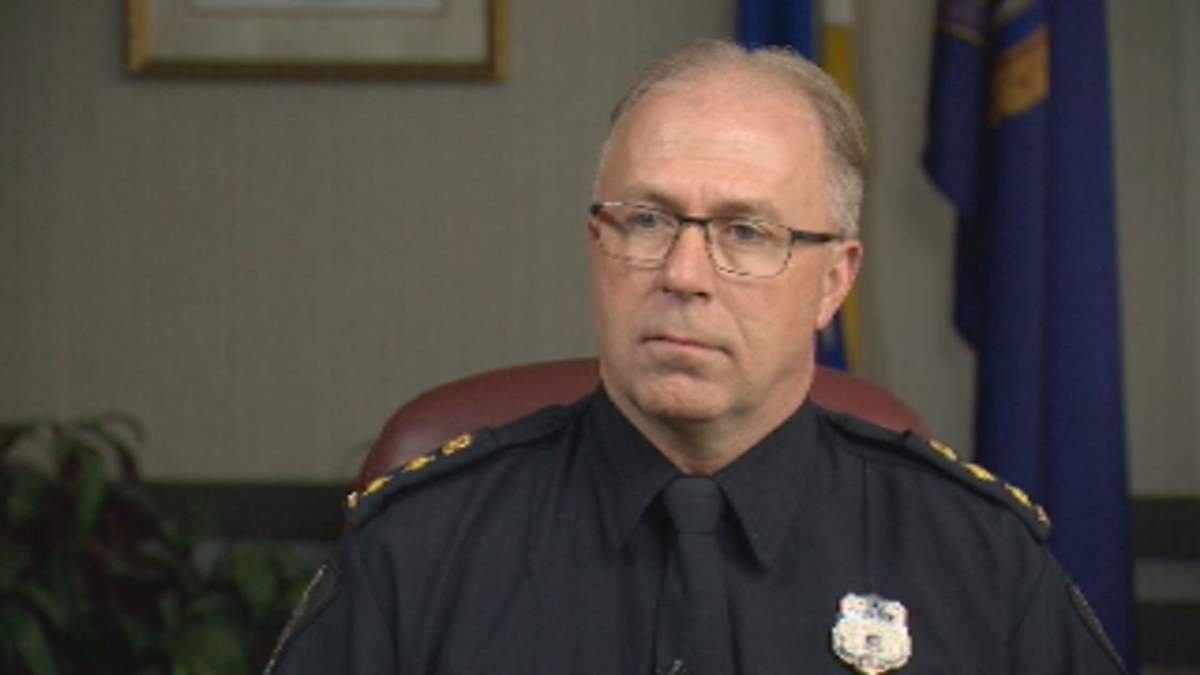The Regina Police Service (RPS) has been dealing with an outbreak of overdoses within the city that are connected to an increased presence of fentanyl.

As of January, there have been 272 overdoses in Regina, 124 of which police responded to. In total, 11 people have died, and 11 more deaths are being investigated.
Regina Deputy Chief Dean Rae says it’s a dramatic rise over 2019, but there’s only so much police can do to combat the problem.
“The biggest issue here is addition,” said Rae. “That’s a health issue, that’s not a police issue we can deal with.”
Global’s Carlyle Fiset sat down with Rae to discuss fentanyl, and how dealing with the problem requires help from health-care.
Answers have been edited for clarity and space.
Carlyle Fiset: Thank you for taking the time to chat with us. We know there has been a dramatic rise in overdoses in Regina. What do you think is behind the rise?
Dean Rae: Quite frankly we think it’s the increased prevalence of fentanyl in our community. We’ve seen a fair amount of fentanyl come into our community in the last year to 18 months. But specifically in the last six months there has been a dramatic rise in the prevalence of fentanyl in a lot of different drugs. It’s fentanyl derivatives incorporated into other drugs.
CF: There’s no switch you can flip to shut off the flow of it. What is the work being done to prevent that?
DR: It’s a bit of everything. It’s public messaging on the dangers of fentanyl. We send out many messages on fentanyl to the community, making them aware of what is out there, and there is a lot of enforcement action taking place by our service.

CF: Why is fentanyl so dangerous for drug users?

Get weekly health news
DR: The biggest danger with fentanyl is the risk it poses. It’s highly addictive when people take it and you got to understand that when fentanyl is added into other drugs it’s hard to tell how much fentanyl is in the other drug. When you make pills and different things, people take that and it often results in overdoses and they’re dangerous. We have police, firefighters, EMS, a whole team out there with Narcan, approaching this to save lives.
But the biggest issue here is addiction. That’s a health issue, that’s not a policing issue we can deal with. Health has to be involved and work with those with addictions because … until they’re able to shake the addiction off themselves, we’re not going to see great changes.
CF: Has the Regina Police Service increased their presence to deal with the outbreak?
DR: We’ve identified a unit within our organization, the Crime Reduction Team, and they’re tasked with attending overdoses and fatal overdoses to determine what evidence is there. If there is evidence we can gleam from a scene to help with investigations that are dealing with drugs, that’s their job and they’re very good at their job.
We’ve had a number of investigations that have resulted from that along with the support of the drug unit. We have dedicated sources working on curbing that supply but it’s not necessarily stopping the overdoses. We’re doing our part as a first responder, and as an investigator in the drug scene, but now we need to find ways to try to help people with addictions.
CF: How has the pandemic affected how you deal with overdoses?
DR: We’re more cautious going into scenes by wearing PPE. But as far as number of overdoses, and type of drugs were seeing, and even the prevelance of drugs, we haven’t seen a change as a result of COVID-19.
CF: What’s your message to people who may be at risk themselves?
DR: For those using, reach out, seek help. That is the way we’re going to deal with this. It’s not something first responders can help them with, it’s something health services will be able to help them with.
CF: Not everyone watches the news, what’s being done on the ground level?
DR: A lot of that happens now. There are a lot of community groups that talk to individuals and let them know when there’s a bad batch of drugs. The word does get out, but this is not something first responders or police can deal with. It’s a community issue, so we have to mobilize the community, mobilize community groups and engage and inform those that are using, and get some help for these people.









Comments